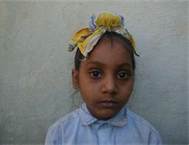
What They Remember
It’s been the summer of meeting up with former students, students I haven’t seen in more than a decade, a summer to reflect upon the passage of time, and the wonder that those shy little kids of long ago grew up into confident, competent adults. They all said I looked exactly the same, so they grew up to be flatterers, too, or gentle liars, or just very kind.
I first had lunch with two sisters who are my mentee Georbina’s cousins. These sisters preceded Georbina to Walsh by a couple of years coming to us from Cape Verde with more English than she did. It was through them that I got to know Georbina’s extended family before I met her. I remember their mother took my husband and I out to Hometown Buffet as a thank you for all the extra help I gave the girls. I remember both girls dressed in beautiful summer dresses for the occasion, like they were going to church.
I hadn’t completely lost touch with them since through Georbina I’d heard how they were and what they were doing. I knew both of them were in college. One just finished her Associate’s Degree and will start her Bachelor’s in September. The other is a year away from completing her Master’s in Social Work at UCONN. I hadn’t seen any recent pictures, however, and at Georbina’s graduation lunch in June, I didn’t even recognize one of these girls. When she was at Walsh, she was shy and had big glasses and long hair pulled back in a pony-tail and wore no make-up, and now she’s got contacts, shorter hair, poise, and is model beautiful.
They remembered going to Hometown Buffet and they remembered that we took them home later to their house on Division Street. The younger one remembered how she’d struggled with Social Studies and Science so much her sister had to come to school and sit with her. We both remembered that by the end of the year she was pulling 100’s.
What was really pleasant was that we were able to drink a glass of champagne together to celebrate their accomplishments and we vowed to stay in better touch from now on. It was something I’d meant to do for a long time, to reconnect with these girls, and I was happy that this summer I finally got around to doing it.
The next encounter with a former student was a total surprise.
On the night of July 3rd, I couldn’t sleep. So as not to drive my husband crazy with my thrashing around, I got up, went upstairs, drank a glass of milk, and went over to the computer to check the news, the weather, Facebook, all the things you check when you can’t sleep, or can’t think what else to do.
On Messenger, I was surprised to find a text from a girl who was a student at Walsh twelve years ago, a girl I hadn’t seen since she graduated. She texted that she’d been going through old photographs and wanted to tell me that she remembered me, that I was, she claimed, the only teacher in the school who’d been able to pronounce her last name correctly, and she remembered me making African food for her and some of the other kids during Black History Month. She wondered if I remembered her.
I did.
I remembered how her Kindergarten teacher, a veteran in the school who I admired for her dedication to her kids, called me down to “evaluate” this girl on one of the first days of school. It didn’t say that she was a limited English speaker on her papers, the teacher said, but she was sure she must be “one of mine”. She “looked” ESL. I knelt down next to the girl and asked her where her family came from. “From Trinidad,” she said. “She’s all yours,” I told the teacher after I stood up. “They speak English in Trinidad.”
What I probably also did was tell the girl I’d been to Trinidad and talked about her country with her not like it was Mars, or some faraway, exotic spot, but like it was a normal place, a place like any other place, a place where people lived and went.
I suggested we meet for lunch and at lunch we talked more about the good old days at Walsh. There were many other things she remembered, but the thing that really struck me were two comments made by a particular teacher about her. One comment she wasn’t meant to hear, but did, and the other one just came out of the teacher’s mouth in front of the whole class, probably surprising the teacher just as much as it surprised the girl. It just didn’t hurt the teacher the way it hurt the girl. I’m sure that teacher doesn’t remember she said it, but the girl still remembers, twelve years later.
I winced when she told me. I winced at what was said, and at things I’ve said that I hope no one heard. Because let’s be honest, teachers do say things. They try not to. They know they should be appropriate and professional at all times and say just the right tender, understanding, encouraging little thing for every situation, but the reality is it’s hard to do that day-after-day for more than 180 days a year. Sometimes your students provoke you. Though I can’t imagine this girl provoking anyone.
I came home after this second reunion lunch wondering how you can ever predict what it is students remember. Since that’s our whole job, isn’t it? To get them to remember things. Teachers often sit and kvetch about it, that not enough students remember what they’re supposed to when it comes to test time. That a student can be staring you in the face, asking questions, apparently engaged, and two minutes later be unable to tell you what it was you were talking about. This leads us to one of teaching’s greatest mysteries. What do they remember? Do they remember their times tables, the equations you jumped up and down trying to get them to learn, or do they remember a compliment you gave them about the way they wore their hair one day? Do they remember the three branches of government, or that you went somewhere to a restaurant with them? Do they remember the different parts of speech, the four types of sentences, or do they remember that one time you lost it and said something you shouldn’t have? You can’t know. You really can’t. It’s frightening.
How dreadful for them to remember the one unguarded thing you said.
I don’t want to turn into a robot, a pre-programmed automaton who always give the same dull, uncontroversial response. I don’t want to lose my individuality, my humor, let’s face it, my humanity, by never saying what I think the way I think it. I don’t want to be a teacher like that. However, after hearing what this girl had to say, I pledged to myself to be a little more mindful this year about what I say to my kids because they obviously do remember something.
They remember kindness and interest and generosity. They remember when you treat them with respect. They remember pleasure in their victories, and delight in their stories. They remember you did things for them you didn’t have to.
They remember if you loved them.
They remind us if we remember them.





Loved reading this Mrs.Strange! 12 years later and you’re still the best teacher ever
Beautifully written and so true!!!
Linda, I’m sure you are a superb caring clever teacher, who would leave only good memories with your many students.
One doesn’t have to be a mother to understand how children react to your
instruction and personality.
So true! It’s hard to be completely guarded all the time but the last thing you want is to be remembered for saying something that makes a student feel bad. I love seeing all my former students doing well. Makes me very happy.
A beautiful post, Linda. In teaching, you also never know how much of a positive impact a comment, a gesture, an action can have on a child.
You capture it perfectly here toward the end:
They remember kindness and interest and generosity. They remember when you treat them with respect. They remember pleasure in their victories, and delight in their stories. They remember you did things for them you didn’t have to.
I second what Anonymous said. I doubt that you have ever been rude or careless with your speech. Being impatient is natural but being cruel is not in your nature.